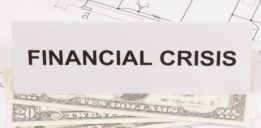End the Fed? Trump Could Favor Legislation to Make the Federal Reserve Accountable
Will future generations think of central banking and the Federal Reserve—the Fed—in the same way we look back at slavery? (Source: “Video of the Day – “End the Fed” Rallies are Exploding Throughout Germany,” Liberty Blitzkrieg, June 19, 2014.) That’s the question that many are asking, including former Republican presidential candidate Senator Rand Paul. “End the Fed” seems to be the message of his recent “Audit the Fed” legislation proposal.
Janet Yellen and the bankers on Wall Street have rejected similar “End the Fed”-type proposals in the past. (Source: “Rand Paul Reintroduces Legislation To “Audit The Fed”,” Zero Hedge, January 4, 2017.) But this time, even while many Republican and Democratic legislators will ignore it, The “Audit the Fed” legislation may get more attention.
You see, President-elect Donald Trump is about to start his mandate. While not stating it quite so clearly, Trump might prove to have a penchant for “End the Fed”-type laws. Rand Paul’s proposed bill would not eliminate the Fed per se. But it would impose the Fed’s monetary policy deliberations to external reviewers through Government Accountability Office. (Source: Ibid.)
Proponents of the measure argue that the Fed simply has too much power. Meanwhile, nobody has enough oversight to monitor its interest rate decisions. Fed officials, including Yellen and her predecessors, reject any attempt to control the Federal Reserve—let alone end the Fed—citing the need for independence from political pressure.
Political pressure on the Fed, in the form of oversight, would “discourage it” from applying potentially disruptive measures for the good of the economy. But what’s good for the overall economy, as the Fed intends it, might not be good for ordinary people.
Senate Republicans and Democrats Have Rejected “End the Fed” Type Legislation in the Past
Even if many of his fellow Democrats have rejected Fed-controlling legislation in the past, candidate Bernie Sanders voted in favor of it in 2016. The fact is that many senators simply assumed President Obama would veto “Audit the Fed” legislation. (Source: Ibid.). But Trump, a Fed critic, makes simply refuting it more problematic.
Trump made no secret of his disapproval of the Fed during his presidential campaign. He blamed the Fed for having deliberately kept interest rates low for Obama’s political benefit. (Source: Ibid.) Simply put, the Federal Reserve and its quantitative easing have fueled the rise in average Americans’ debt.
The Fed’s mandate—generally the same as that of central banks—is to ensure maximum employment (and hence growth) under constraint of price stability (and hence purchasing power of the dollar). To do this, the central banks implement a monetary policy.
If the Fed thinks that inflation is rising (the dollar is dropping in value), it lifts rates. This increases the cost of credit. If inflation is too low, growth is too low, and unemployment is high, the Fed lowers rates to stimulate growth.
The central bank rate is the average rate at which banks lend money to each other. By lowering it, central banks encourage commercial banks to lend more. They hope this will stimulate growth and regulate consumption. To lower interest rates, central banks like the Fed can resort to a mechanism to literally print—or its modern electronic equivalent—from nothing.
The Fed then uses these ex-nihilo dollars to buy government bonds on the financial markets. The newly created dollars feed the banking industry with fresh money. This increases the supply of dollars that banks can trade with each other, lowering the rate.
The “Audit the Fed” legislation may not go as far as “End the Fed” proponents would like. But, it would launch a realistic effort to add some much-needed transparency and accountability to the institution. It remains to be seen if Trump’s Wall Street appointees share that sentiment enough to achieve some real change.






